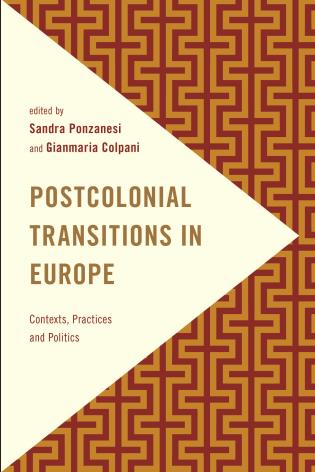Cosmopolitanism from the Margins: Redefining the Idea of Europe through Postcoloniality” in Postcolonial Transitions in Europe
Baban, F. “Cosmopolitanism from the Margins: Redefining the Idea of Europe through Postcoloniality” in Postcolonial Transitions in Europe. ed. by Sandra Ponzanesi and Gianmaria Colpani ( 2016)
Is the notion of postcolonial Europe an oxymoron? How do colonial pasts inform the emergence of new subjectivities and political frontiers in contemporary Europe? Postcolonial Transitions in Europe explores these questions from different theoretical, geopolitical and media perspectives.
Drawing from the interdisciplinary tools of postcolonial critique, this book contests the idea that Europe developed within clear-cut geographical boundaries. It examines how experiences of colonialism and imperialism continue to be constitutive of the European space and of the very idea of Europe. By approaching Europe as a complex political space, the chapters investigate topical concerns around its politics of inclusion and exclusion towards migrants, asylum seekers and refugees, as well as its take on internal conflicts, transitions and cosmopolitan imaginaries.
Table of Contents
Part I: Postcolonial Europe and its Discontents
1. European Racial Triangulation, Anca Parvulescu / 2. EU Migration Policy Towards Africa: Demographic Logics and Colonial Legacies, Peo Hansen and Stefan Jonsson / 3. The Homeless, the Lawyer, and the Cardboard Sign: Charity in Contemporary Europe, Mireille Rosello / 4. Specters of Colonialism: The Anglo–Irish Conflict, Space, and the Body in Steve McQueen’s Hunger (2008), Sarah Fekadu–Uthoff /
Part II: Postcolonial Times: Memory and Transition
5. Hidden Memories: October 17, 1961, Charlie Hebdo, and Postcolonial Forgetting, Christine Quinan / 6. Under the Western Gaze: Sexuality and Postsocialist “Transition” in East Europe, Rasa Navickaitė / 7. Resentment at the Heart of Europe: Narratives by Afro–Surinamese Postcolonial Migrant Women in the Netherlands, Sabrina Marchetti /
Part III: Postcolonial Spaces: Un/Doing Borders
8. Postcolonial Citizenships and the “Refugeeization” of the Workforce: Migrant Agricultural Labor in the Italian Mezzogiorno, Nick Dines and Enrica Rigo / 9. Convivial Crossings in the European South: New Italian Representations, Annalisa Oboe / 10.Import Export — Explorations of Precarity in European Migratory Culture, Brigitte Hipfl / 11.“The Other Within”: Challenging Borders from the European Periphery, Milica Trakilović /
Part IV: Postcolonial Mediations
12. Reading The Herald Today: Postcolonial Notes on Journalism and Citizen Media, Bolette B. Blaagaard / 13. Social Media as Contact Zones: Young Londoners Remapping the Metropolis through Digital Media, Koen Leurs / 14. Digital Religion: Rethinking Multicultural Identities through Muslim Women’s Online Practices, Eva Midden / 15. Libidinal Cosmopolitanism: The Case of Digital Sexual Encounters in Post–Enlargement Europe, Nicholas Boston /
Part V: Postcolonial Europe and Beyond: Cosmopolitan Reflections
16. The Cosmopolitan Media Cultures of Europe, Anikó Imre / 17. Europe, Cosmopolitanism, and the Postcolonial Biennial, Monica Sassatelli / 18. Cosmopolitanism, Emplacement, and Identity in Recent Postcolonial Literature in German, Dirk Göttsche / 19. Cosmopolitanism from the Margins: Redefining the Idea of Europe through Postcoloniality, Feyzi Baban
http://www.rowmaninternational.com/books/postcolonial-transitions-in-europe
